Chess tactical Bibles
In some of the previous posts on this blog I have considered the subjects chess improvement and chess tactics.
As I have mentioned there, I consider chess books as the best source for studying chess.
Additionaly, the importance of practicing chess tactics on a regular basis was also emphasized.
Too be completely honest, in the chess tactics domain books are probably most easily supplemented. There is an abundance of internet sources which offer daily chess tactical training (some of which are linked in the widget area on the side). Moreover, there are internet sites dedicated exclusively to chess puzzles, such as chesspuzzles.com.
Finally, if I can be shameless enough (and there is no reason why I can’t since I bought this damn domain :P), there is also a growing list of daily chess tactical problems available on this blog.
However, the major drawback of everything mentioned above is serious lack of material organization. I haven’t yet encountered a chess internet page whose puzzles have a completely coherent structure.
More or less every page I have encountered offers endless series of random puzzles that hardly have ANYTHING IN COMMON. Therefore, such puzzles are great for regular exercise, but there is no LEARNING CURVE which allows the reader to progress and seriously raise his level.
If you remember the PATTERN RECOGNITION concept, the sentence written above might make some more sense.
Because practicing similar tactical themes in different positions repetitively makes them easier to remember and easier to find during your own games.
Therefore, although internet is always VERY USEFUL tool, I would say that for mastering the chess tactical plays books are still MUCH MORE EFFICIENT.
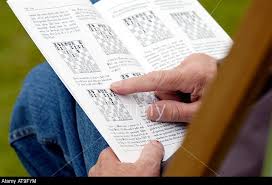
Naturally, everything written above is merely my own personal opinion. I like reading chess books in general, and proudly own multiple chess tactical books.
Therefore, in order to help the reader who perhaps doesn’t have an idea where to start, I’ve decided to publish a LIST of what I believe are some of the best chess tactics books.
1. ULTIMATE CHESS PUZZLE BOOK – JOHN EMMS
John Emms is a very famous chess author, famous for his MOVE BY MOVE opening books series.
In this instance, he has assembled a total of 1001 chess tactical puzzles.
The puzzles are organized into several sections, starting with the ELEMENTARY PUZZLES and are getting progressively harder towards the end of the book.
Although expert players may extricate little from this book, it is ideal choice for BEGINNER AND INTERMEDIATE players.
2. TAL’S WINNING CHESS COMBINATIONS – Mikhail Tal and Victor Khenkin
Another book highly suited for BEGINNERS, but not only beginners. When it comes to tactics, the name of Mikhail Tal suggests itself.
The book is organized like a textbook. Initially there is a learning chapter devoted to a certain tactical subject, and afterwards it is followed by a series of tactical puzzles.
The things that makes this book DIFFERENT from other books of this genre is the fact that the authors focus on PIECES instead of TACTICAL ELEMENTS. Every chapter covers different piece combinations and I haven’t seen similar approach in many other chess books.
The only drawback is the fact that the book uses the older, DESCRIPTIVE, instead of the modern ALGEBRAIC notation.
But I think it is only a minor setback, and it would be shame to miss Tal’s witty style only because of a couple of letters. 🙂
3. JOHN NUNN’S CHESS PUZZLE BOOK – JOHN NUNN
If you are unfamiliar with the name of John Nunn, he is currently the world champion in CHESS PROBLEM SOLVING. Among other things.
So it is fair to assume that he probably knows a thing or two about chess tactics.
What I like very much about this book is the fact that Nunn doesn’t simply put a puzzle with the words “XY to play and win.”
Instead, he lets the reader guess whether there is a combination available in the position, or the most tempting move doesn’t actually work.
Since there is no GUARDIAN ANGEL in your own games telling you there is a winning move available, I think this approach is excellent.
I have to be fair and say that I haven’t been able to solve EVERY OF THE 300 puzzles available correctly. Therefore, this book is definitely NOT RECOMMENDED for BEGINNERS.
But for someone rated 2000+ (or 2200+ for that matter) it is an EXCELLENT CHOICE.
4. GREATEST 365 CHESS PUZZLES AND GREATEST 501 CHESS PUZZLES – CSABA BALOGH
There is nothing too revolutionary too say about this two books. Hungarian Grandmaster Balogh Csaba ha6s put both time and effort to come up with a total of 866 chess puzzles, exclusively FROM RECENT GRANDMASTER GAMES.
The material is not organized by the tactical idea in the positions, but purely by difficulty, which makes things even more realistic. Additionaly, there are five test, each consisting of 10 puzzles, where you can also practice calculation in the alotted time.
Once again, this is probably NOT the BEST CHOICE for the BEGINNERS, but everyone slightly more experienced should find this books extremely useful.
5. ENCYLOPEDIA OF CHESS COMBINATIONS
Finally, the MOTHER OF ALL BOOKS. The ultimate chess book, consisting of MONSTROUS 3001 chess tactical puzzles. One you can come back to infinite amount of times, and that has something to offer for everyone.
The material is organized according to the CHESS COMBINATION ELEMENTS, and there are three difficulties for each and every combination element.
What I like particularly about the harder puzzles of this book is the fact that often the FIRST MOVE IS OBVIOUS. But calculation behind it, neccessary to make it work, is sometimes very deep and very hard (certain puzzles have the “official” solutions 10 moves long).
Despite the somewhat higher price, I cannot recommend this one highly enough.


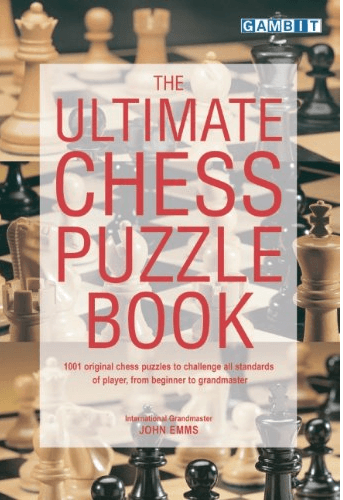
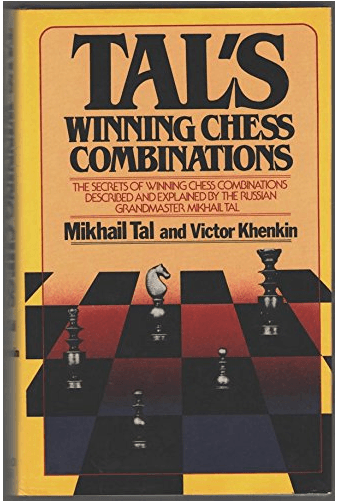
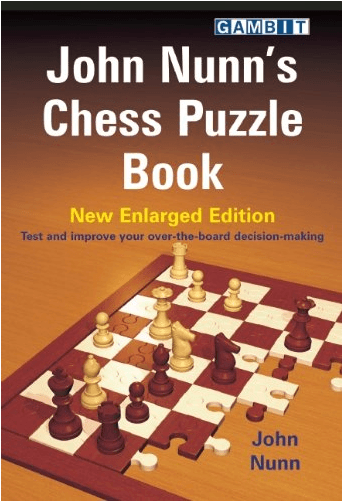
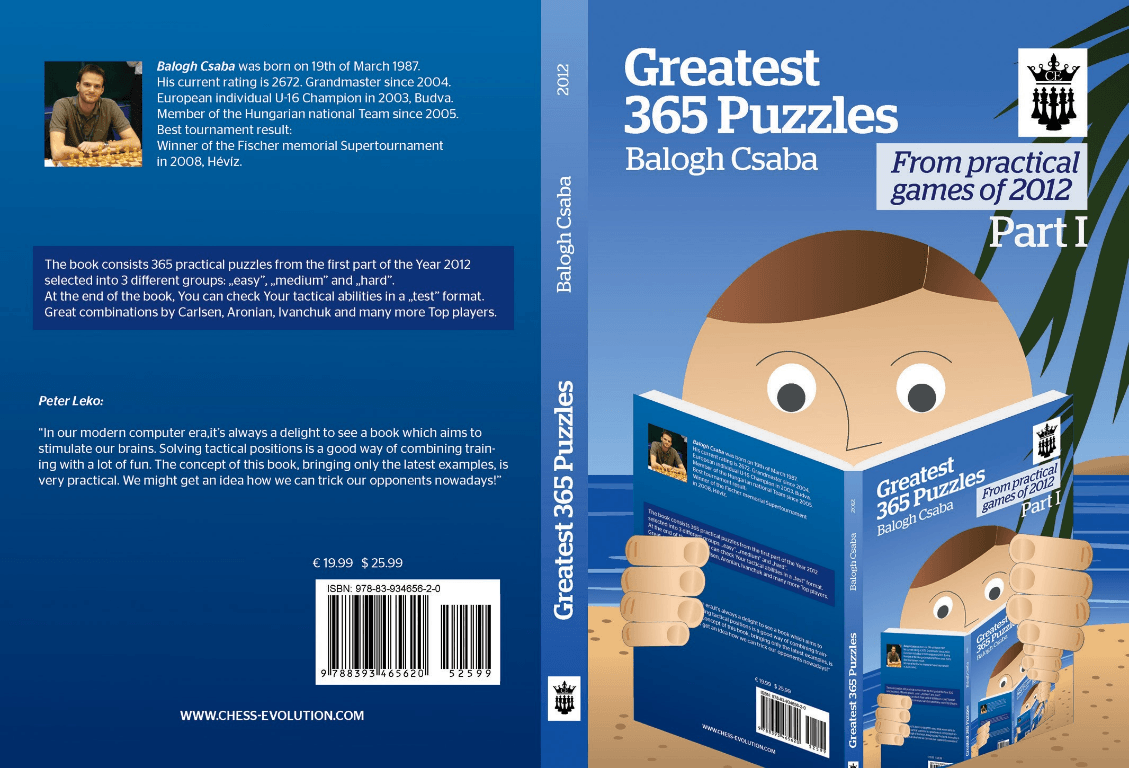
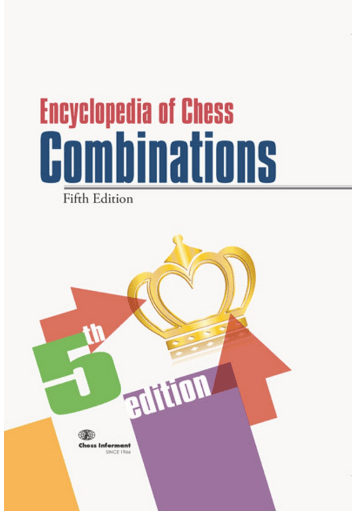
I don’t know if it’s still in print, but COMBINATION CHALLENGE! contains 1154 different positions grouped by various useful themes: Back Rank; Pin; Queen Sacrifice; Overloading; Knight Fork; Double Attack; Discovery; Diversion; Clearance; Attraction, and Smorgasbord. You can spend literally months going over it again and again, and because the positions are grouped by theme, it makes pattern recognition a lot easier.
Hi Jim, as I said on quora, thank you very much, I will definitely try to check it out
I really like the tactics time series too. Very pragmatic tactics and a great kindle format.
Hey Marius,
Thanks for the comment, I have heard about it but haven’t had the opportunity to go through it yet, now it is on my kindle 🙂
Susan Polgar’s book ‘Chess Tactics for Champions’ is also a great and simple book. The various tactical ideas are organised into chapters and each chapter has around 50 problems. I think it is very important to highlight ideas with a small number of problems and not overwhelm the reader. I would really love for this book to be available on Chessable so I can learn it better.
When I say ‘simple’, I don’t mean that the book is easy to work through. I mean that the structure is easy to understand and very educational.
Hi Saikat,
I have to say I didn’t go through Susan’s book, but judging by your comment, it is well worth a look. I liked the definition of ‘simple’ – I think it was spot on 🙂
Cheers
Vjeko
Hello, thanks so much for the article. Have you tried the woodpecker method? I wondered if it’s any good as it was recommended to me. Grateful for your thoughts if you have. Anna